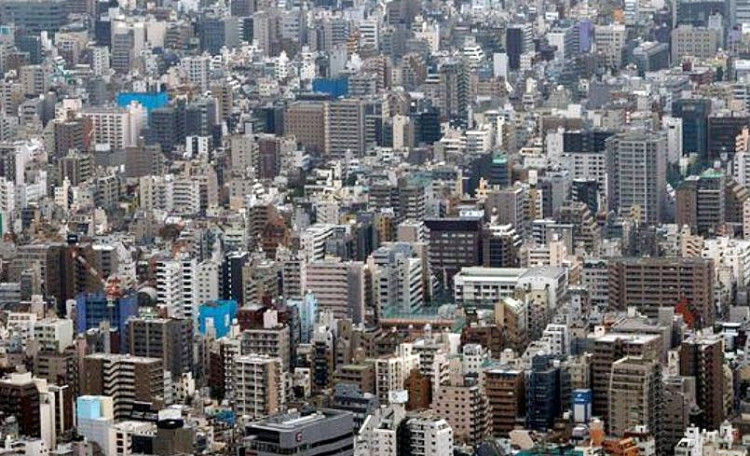A sustained tourism boom ahead of the widely-anticipated 2020 Tokyo Olympic Summer Games played a key role in the slight 0.1 percent rise in the average price of land in Japan in June. Inflows of money from abroad, especially China, are behind Japan's skyrocketing property prices and are not expected to abruptly decline.
The Ministry of Land, Infrastructure, Transport and Tourism (MLIT) said the scant uptick ended 26 straight years of property prices decline since Japan's infamous Bubble Economy burst, sending Japan into a deflationary spiral that remains to this day. It is this spiral that Abenomics and its three arrows of policy (including a weak yen that attracts real estate investments) seeks to end.
MLIT credited a strong and ongoing tourism boom and its effect on boosting construction of hotels and shops for the rise. The first price increase in 27 years was mostly due to gains in urban areas such as Tokyo and Nagoya. Mountainous and other rural areas (some of which were battered by floods and scorching summer heat), especially those with falling populations, saw continued price declines.
Regional areas where land prices are rising are those where transportation networks are being built along with other development projects to attract foreign tourists, according to Takeshi Ide, senior chief researcher at Tokyo Kantei Company, a real estate research firm.
Tourism is booming in Japan. International tourists came in at a record high of more than 24 million in 2016. From January to June this year, the estimated number of foreign visitors to Japan rose 15.6 percent to 15.89 million year-on-year. This was a record for the first half of the year, said the Japan Tourism Agency.
Prices in Japan's three largest metropolitan regions (Tokyo, Nagoya and Osaka) rose 4.2 percent. Property prices in four key regional cities (Hiroshima, Fukuoka, Sapporo and Sendai) ballooned by an average of 9.2 percent. In other regional cities, however, commercial land prices dropped 0.6 percent, revealing a gap between bigger cities and minor regional ones.
Real estate analysts noted that in regional areas where populations are falling, commercial facilities and hospitals are closing down. This polarization of regional land prices is expected to carry on.
At the height of the asset-inflated Bubble Economy of the late 1980s and early 1990s, average land prices in Japan zoomed to a record 13.7 percent in 1990. The last time land prices were in positive territory was in 1991 with a 3.1 percent rise.
As in the past, it's the big money from overseas that drove-up property prices in the first-half of this year. Overseas investment funds are still gobbling-up real estate, attracted by the yen's relentless weakness and ultra-low interest rates.
Foreign money, especially from wealthy Asian countries such as Singapore and China, remains the biggest force in Japan's booming real estate market. Foreigners are pouring more money into real estate than Japanese wealth funds, developers and government institutions. Government records show this is the first such shift since data became available on this phenomenon in fiscal year 2000.






